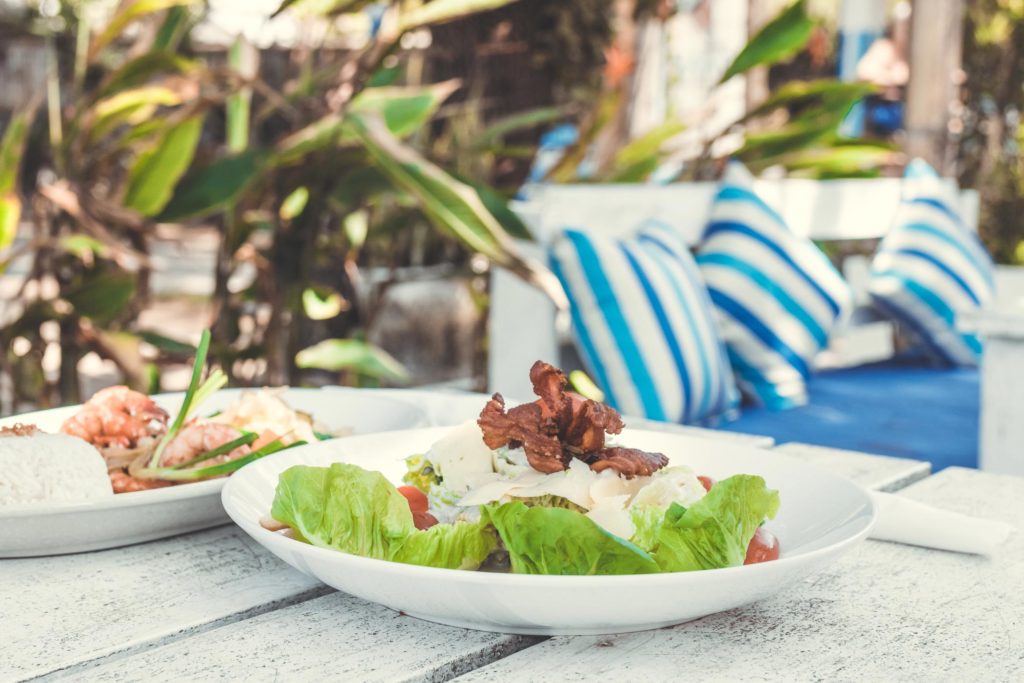Overcoming Inflammation Through Healthy Eating – Renewed Efforts
I never expected to live past about twenty-five. I drank so heavily and was so overwhelmed by past trauma that I didn’t believe there was hope for me. Now forty, I’ve been sober almost fifteen years and find I have problems that I never imagined I’d have. One of those issues is how to live a healthier lifestyle when I did not expect to be alive at all. Healthy eating has been a particular struggle.
I admit, I have been slow to take on the mantle of healthy eating. I am about eighty pounds heavier than I’d like to be, owing to the fact that I feel more comfortable in a bigger body than a smaller one. Due to earlier sexual trauma and abuse, I have the false but very real idea in my head that I’m safer in a big body than in a smaller one. Except for the negative consequences on my health, I wouldn’t bother to make a change. People who love me, love me as I am. However, now that I haven’t died of addiction, I find myself wanting to live longer and healthier. That involves making some changes.
Dwight Lundell, M.D.
Dwight Lundell, M.D. is a heart surgeon who is championing a major change in the way we live and eat. He is among those calling for a return to a “whole foods” diet – a diet that limits or eliminates the highly processed foods we have come to rely upon as our modern American fare. Dr. Lundell, along with many others, suggests that these processed foods cause inflammation, the angry swelling of our tissues – which results in heart disease, strokes, diabetes, and other illnesses. Healthy eating, whole foods, rich in nutrients, prevent or limit inflammation, leading to better overall health.
What does a whole foods diet involve?
It means eating food in ways that are as close to natural as possible. Plants and vegetables should be recognizable as what they were when they came out of the ground or were plucked from a tree. Meat, in limited quantities, should be grilled, baked, broiled, or cooked in small amounts of natural oils. All white flours and artificial sweeteners, preservatives, processed oils, and other chemicals should be limited to very small amounts or eliminated altogether. If breads or starches are consumed, they should be whole grains, roasted potatoes, or rice that has not been processed. Purchase organic produce whenever possible, grass-fed meat, free-range eggs, and artisanal finished products, such as cheeses (which should also be eaten sparingly, but can be eaten healthfully on occasion).
Healthier living
I ate this kind of diet for two weeks on a recent trip overseas – and I have to say that not only did I lose two pounds while eating large quantities of delicious food, but I also felt really good. I slept more soundly and didn’t feel sluggish or in need of a nap after meals. Though I have not eaten as well since I have returned home, I realized in writing this post that in the last two weeks since my return, I have not eaten anything that has come into my possession through my driver’s side car window and I have maintained my weight loss.
There is no doubt that I will slip up from time to time and eat a big plate of spaghetti – one of my weaknesses. However, as with all aspects of recovery and healthy living, baby steps is the best way to make change, for it is in our little successes that we are able to create major changes.
I encourage you, if you’re even thinking about healthier living and healthy eating to read up on inflammation and heart disease, diabetes, and strokes – and then join me in doing whatever you are able to eat in a way that promotes health and longevity.
Another one of my healthier habits is using meditation to quiet my mind.
The Best Call You Will Ever Make
Call Now to Speak Confidentially with an admission counselor.
–
